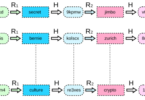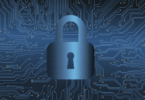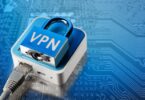With so much cybercrime on the rise, follow these ten easy tips to help you keep your data, identity, devices and your internet traffic secure.
1. Create Complex Passwords
Creating strong and unique passwords is something that is usually ignored by many internet users. However, by doing this simple task, you can end up protecting your data, identity and devices from being infected by malware.
Besides creating a complex password, you should also avoid using one password for multiple accounts. Making use of a single password for all your accounts is an easy way for cybercriminals to have access to your accounts.
Also, ensure that all your accounts provide multi-factor authentication. Multiple-factor authentication generally requires multiple pieces of information to verify your identity. This makes it hard for hackers as every time they try to log into your account; they will need a code which is sent to your mobile phone. Also, they will need to provide the password as well as the passphrase.
2. Install and Keep Your Antivirus Program Updated
Although internet security software is not guaranteed to protect you against every threat completely, it is capable of detecting and removing most malware. As such, it is always advisable to keep your antivirus updated.
The type of antivirus program you choose should also be able to protect all your devices and is not limited to your computer only. You can read review about Kaspersky as it is one of the best antivirus programs available.
3. Improve Your Network Security
Always make sure that your connections are secure, whether at home or at work. Avoid using free wi-fi or public wi-fi as they are usually unsecured. The risks of hackers gaining access to unprotected connection is always easier.
If you can, consider investing in a VPN which stands for Virtual Private Network. With a VPN, you get a secure internet connection, and you can safely access the internet, whether at work or home.
4. Set-up Firewalls
Firewalls are usually built to either give something access or deny it access. By setting up firewalls, you can be able to keep unauthorized intruders trying to access your network at bay.
With firewalls, you get to control all your incoming and outgoing traffic within your network. You also get to block any unauthorized persons from accessing your connection. With a firewall, you can also trigger an alarm system which then allows you to see the unauthorized person or thing, trying to access your connection.
5. Avoid Clicking on Any Suspicious Material
Be it a phishing or spam email, strange links, or free ad pop-ups, never open such without first investigating them thoroughly. Even a simple email from a friend can be a carrier of malware and other types of viruses.
If you must open the link, copy the link and paste it into a trustworthy link checker to verify its origin. The secret here is to avoid opening any suspicious content without first scanning it through. Also, be careful about what you download from the internet. Never download apps or content that looks suspicious as you might end up downloading malware into your device.
6. Shop Smart
For every purchase you make online, ensure that you only purchase from secure sites. This is because, during such transactions, you are required to provide your bank account or credit card information.
Cybercriminals are always eager to have such sensitive information fall into their hands. To protect yourself, ensure that your online transactions are safe. The first step to knowing whether a site is secure is by checking their address. Any address that starts with https: is considered secure as the ‘s’ stands for secure. Also, protected sites have a ‘padlock’ icon right next to the address bar. Not so many people know but there are bots for shopping online that can really help you be more secure.
7. Be Careful What You Share
To avoid being impersonated or people using the information you provide to guess your passwords and logins, be selective with what you share. Not everything is meant for public consumption.
8. Be Wary of People You Meet Online
Not everyone you meet online is what they say they are. Keep your guard up and keep your information away from online strangers no matter who they claim to be.
9. Always erase Your Cache
The cache on your browser knows more about you than you would want to admit. Make a habit of clearing all your saved cookies, web history, saved searches and any other personal data that could point to your address or family information.
10.Keep Yourself on the Know
Online threats keep evolving all the time. Having an idea of what to look out for can help protect yourself from becoming a victim of cybercrime.
Conclusion
The above tips are generated towards helping you have a secure experience every time you use the internet.






